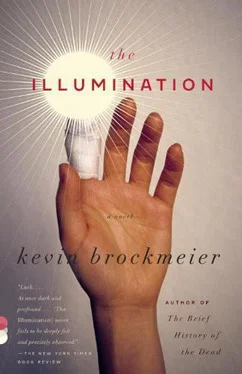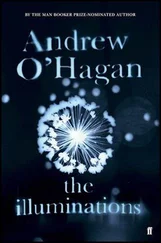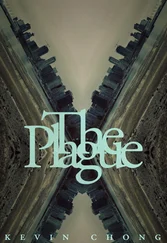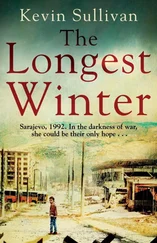A Fable.
A fable.
A f a b le.
Her ulcer had begun pussing out, which meant that it was healing, but meant, too, that if she kept her lips closed for even half a second, the discharge would glue them together and pulling them apart would transfix her jaw with light. It was shameful, her pain, appalling. She hated to exhibit it, hated the attention it brought her. And yet she couldn’t stop thinking about it, couldn’t stop trying to justify or understand it. Most of the people who gathered to collect her signature were too young and fit to display more than a few minor sports injuries and shaving rashes, along with the occasional gleaming cincture of a hangover headache, but there were others in line, too, the sick and the insulted, her people. The teenage girl confined to a wheelchair by cancer or arthritis, hip dysplasia or osteonecrosis, her pelvis a shining cameo of bones. The old man whose heart was failing, pulsing the way a star pulses. The woman nursing a glowing thyroid, surreptitiously pressing a hand to her neck. The doctor in her hospital scrubs, who seemed so healthy as she stood facing Nina but turned to hobble away with her spine iridescing through her shirt like a string of frightful pearls. Nina looked at them, and something softened inside her. She wondered if her face showed what she was thinking: Yes. That’s it. I understand. You don’t have to tell me .
Capping off the procession was a college student who wanted Nina to “sign this note” certifying that he had “gone to this reading.” As soon as she scratched her name on the page, he whisked it away from her, zipping it into his backpack as if it were some wild creature trying to buck its way out of his grasp.
Now it was only Nina and one of the booksellers. She fell silent as she autographed the remaining stock, fifteen copies of her new collection and twice that many of her most recent novel, Twin Souls , a sort of parable in the guise of a love story, about a world in which there were two of everybody and it was forbidden to interact with your other self—the first book of hers that had sold well enough, miracle of miracles, to earn out its advance. Her signature slowly changed beneath her fingers, rearranging itself, purifying itself, plunge by plunge and bend by bend until it was no longer a set of letters at all but a curious abstract design. It was like the pattern she had once watched a moth draw with its wings in the condensation on her bathroom mirror. She remembered switching off the lights and opening the window so that it would fly away and then, when it did, calling Wallace in to see the strange hieroglyph of sweeps and flickers it had left behind.
“I bet it was trying to communicate with you,” he mused. “Maybe it was my dad, reincarnated as a moth, and the only way he knew how to get in touch with us was to write something with his wings.” He looked more carefully at the mark. “Except he’s illiterate.”
Wallace, her wonderful, brilliant Wallace, was the product of a fling she had allowed herself one night when she was drunk and twenty-two with a man whose name and face had abandoned her the moment he put on his clothing. Nearly five years passed before she found his business card behind her dresser and in a flash remembered who he was—his fingernails with their clean white crescents, a banker’s nails, and the way he bathed her thighs with kisses, stopping just short of her pubic mound as though he had encountered a brick wall. How, she wondered, would she ever work up the courage to tell the man what their one sodden hour of sex had engendered? The question, as it turned out, was academic, since a Web search informed her that not long after Wallace was born his father had been killed in a speedboat accident, “age 28, survived by his wife and childhood sweetheart, Tammy.” Wallace knew little more than that his father had died a long time ago and the two of them had never married.
When the last book was signed and the “Thank you so much, Ms. Poggione” came, Nina said good-bye with a handshake and collected her possessions. It wasn’t until she was on her way to the staircase that she noticed him standing at the first-editions shelf, John-with-an- h Catau, running his fingers over the covers as if he were fascinated, absolutely fascinated, by the various Gail Godwins and Curtis Sittenfelds in their clear plastic sleeves.
She stopped short. “What on earth are you doing here?”
“Why, of all the places to run into each other,” he joked. Clearly he had been rehearsing what to say, but he made it only midway through the sentence before his voice tightened in a plexus of timidity and self-doubt, the same slipknot effect she had noticed the day before. “I’m sorry,” he continued. “Is this too much? This is too much, isn’t it? It’s not a long drive from Seattle to Portland. Two and a half hours. It was just that you said ‘some other time,’ so I thought maybe… well… tonight. ”
For some reason she could not work up any anger toward him, or even any distrust. He was so obviously harmless—and not harmless in the thin-veneer way of countless serial killer movies, but truly harmless. He wore the fixed expression of a child caught filling the saltshaker with sugar. If only she weren’t so exhausted.
“I’m sick.” She said it once for herself and a second time for him. “I’m sick, John. And your attention is flattering, and if things were different, I would be happy to get a drink with you somewhere, but every minute I’m not holed away in my hotel room, alone , is hard for me. Do you understand?”
He grinned. “You remembered my name.”
“Bye, John.”
“Look, how about some coffee? There’s a coffee shop right downstairs. And then you can go back to your hotel and get some sleep and maybe tomorrow you’ll feel better than you do today.”
Make me better tomorrow than I am today. Make me better next week than I’ve been this one .
She was the type of person who never read her horoscope, never saved the slips from her fortune cookies, and yet there were times when she was all too willing to be guided by coincidence and intimation, those fleeting signals that flagged the air like torches and suggested the universe had lit a trail for her. Which was why, she supposed, she agreed to have a cup of coffee—one cup—with him. She ordered a small vanilla latte, iced, so that she could conduct it to the corner of her lip with a straw. Did she want something to eat? A scone?
“God no.”
She missed the days of dining out with her friends and lovers, indulging her appetite for lobster or curry, pad Thai or seasoned French fries, before she knew how much would be taken from her, and how quickly. Occasionally, in the stillness of a taxi or an airplane, she would catalog the pleasures she had lost. Cigarettes. Chewing gum. Strong mint toothpaste. Any food with hard edges or sharp corners that could pierce or abrade the inside of her mouth: potato chips, croutons, crunchy peanut butter. Any food that was more than infinitesimally, protozoically , spicy or tangy or salty or acidic: pesto or Worcestershire sauce, wasabi or anchovies, tomato juice or movie-theater popcorn. Certain pamphlets and magazines whose paper carried a caustic wafting chemical scent she could taste as she turned the pages. Perfume. Incense. Library books. Long hours of easy conversation. The ability to lick an envelope without worrying that the glue had irritated her mouth. The knowledge that if she heard a song she liked, she could sing along to it in all her dreadful jubilant tunelessness. The faith that if she bit her tongue, she would soon feel better rather than worse. The coltish rising feeling of sex or masturbation, and the way, as it gripped her, she no longer stood between herself and her senses. The problem was that the more aroused she grew, the dryer her mouth became, so that she could never reach culmination without experiencing that awful germinating sensation she felt before an ulcer erupted, like a weed spreading just under her skin. She no longer knew when she was being sensible, when overcautious. She was tired, very tired, and she hurt. Writing about it did not make it better.
Читать дальше












